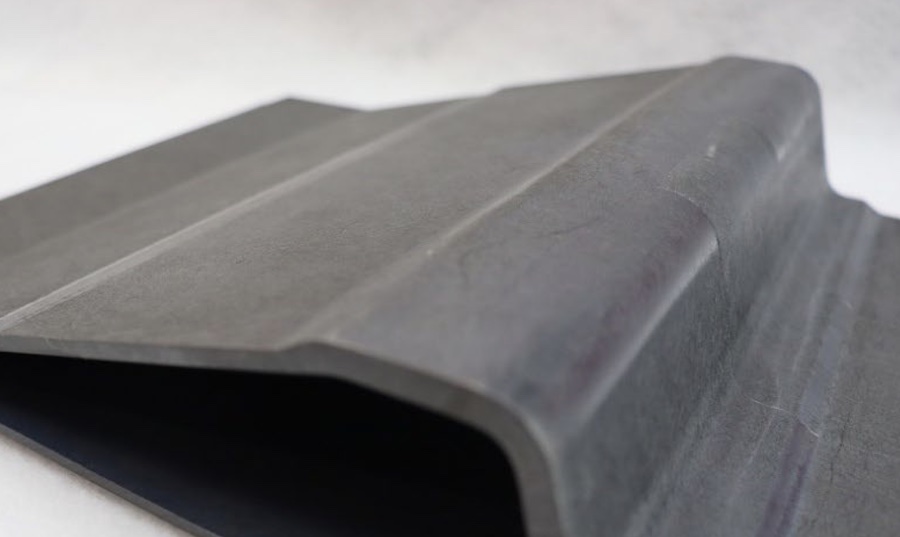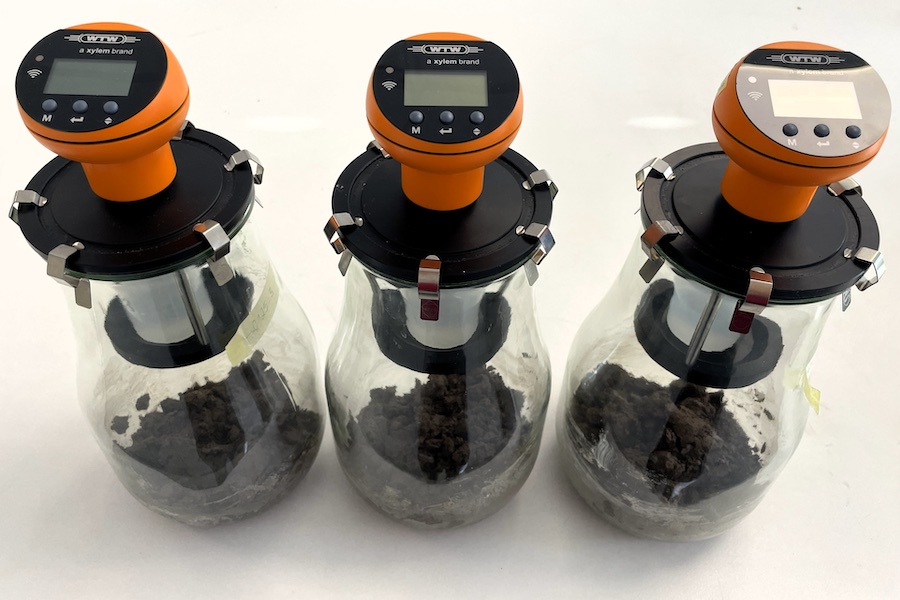#Research & Development
DWI collaborates with Niederrhein University of Applied Sciences on research into eco-friendly functional clothing
Among other things, so-called semi-permeable membranes are used for many of these products, which are neither environmentally friendly nor recyclable.
The market for outdoor clothing is enormous. In Europe alone, the turnover in 2019 was around 2.9 billion euros. Equally large - and steadily increasing - is consumer demand for items made from environmentally friendly materials, which, among other things, are more resource-efficient and biocompatible compared to their conventionally used counterparts.
A research team from the Niederrhein University of Applied Sciences and the DWI - Leibniz Institute for Interactive Materials in Aachen is working on developing a new type of functional clothing. An integral part of such clothing are so-called membranes. These are thin separating layers that allow the clothing to be equipped with various functions, such as protection against moisture, breathability and a natural temperature regulation.
"The challenge with such membranes is that they ideally fulfil different functions at the same time. On the one hand, an outdoor jacket should be rainproof, for example, but at the same time let out water vapour that is produced during perspiration. This material property is called semi-permeability. We can achieve this by using so-called hydrophilic materials," says Alexandra Glogowsky, research assistant at the Research Institute for Textiles and Clothing (FTB) at Niederrhein University of Applied Sciences, explaining the basic principle. She is a research assistant and conducts research in Prof. Dr. Maike Rabe's working group.
With the help of such technologies, it is possible for the wearer to remain protected from rain and wetness, but also to wear pleasantly dry clothing during physical activity, because it does not absorb moisture excessively. Membranes that make this possible are used in the sports, outdoor and workwear segments, but also in home textiles (such as mattress protection), shoes and technical textiles from the medical sector. "We now want to develop a membrane that adapts specifically to its wearer during physical activity. That is, it should allow greater vapour permeability when the body temperature is elevated. We call this 'temperature responsive'. At the same time, recyclable and more environmentally friendly materials must be used," explains Alexandra Glogowsky.
The solution the partners are working on: A completely new barrier membrane made of so-called thermoplastic elastomers. Here, microgels are built into the membrane. These are small particles that can absorb and release water and are biocompatible. By combining a carrier material with microgels, an environmentally friendly, easy-care semi-permeable barrier with high functionality is to be developed. Furthermore, special processes are used to coat textiles with these membranes, which enable improved recycling of clothing and also avoid the use of environmentally harmful substances.
To achieve this goal, the research teams are pooling their various competences from the fields of polymer chemistry and textile technology. "The microgels are present in the membrane as small particles. However, they can swell many times over and therefore absorb moisture in large quantities," explains Thomke Belthle. She is a research assistant at the DWI - Leibniz Institute for Interactive Materials. In the working group of Prof. Dr. Andrij Pich, she researches customised microgels for specific applications and supplies this raw material, already embedded in a carrier material, to her colleagues in textile technology. "The microgels have sponge-like properties - specifically, this means that even if you sweat slightly, they already absorb the moisture. This is a problem with commonly used membranes, so our development has the potential to revolutionise the market," explains Thomke Belthle.
The scientists are also researching how to apply the microgel-based membranes only to certain areas of a garment - using 3D printing as a digital coating method. "This can be important, for example, if a paramedic's uniform needs to be particularly good at transporting sweat away from the back, while it needs to be particularly robust and waterproof at the knees," describes Alexandra Glogowsky.
Companies from the processing industry in particular are to benefit from the research, including many small and medium-sized companies from the sportswear, functional clothing, workwear and medical textiles sectors. The research project is accompanied by a project committee. Various companies and partners are represented here along the production chain of the raw material up to the material recycling.
The project runs for two years and has a total volume of around 500 thousand euros.

















